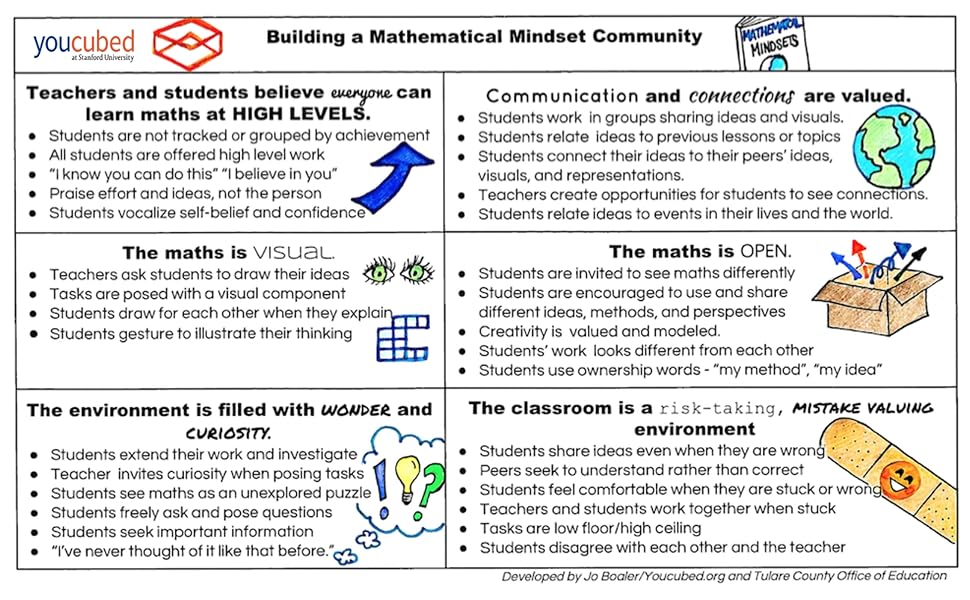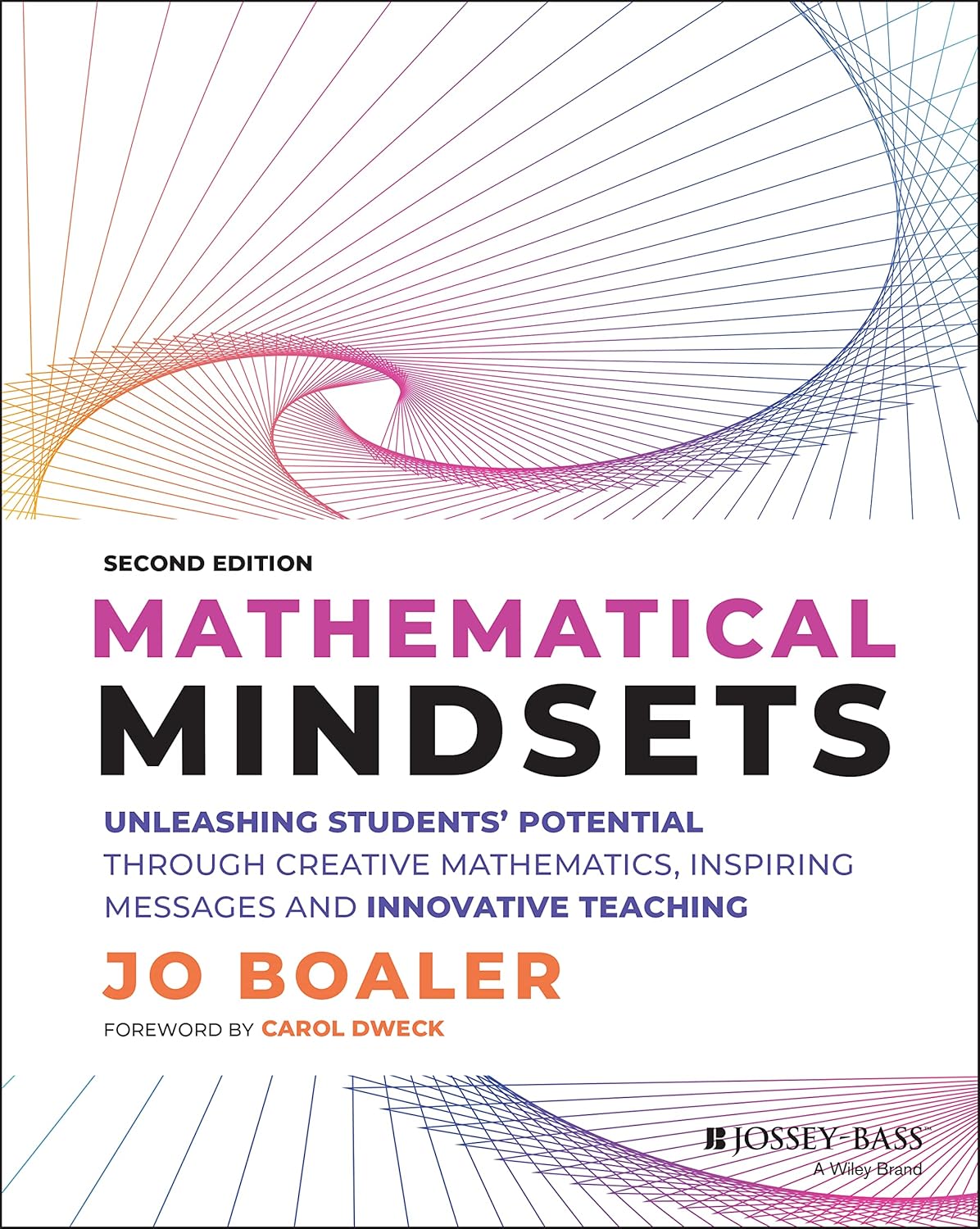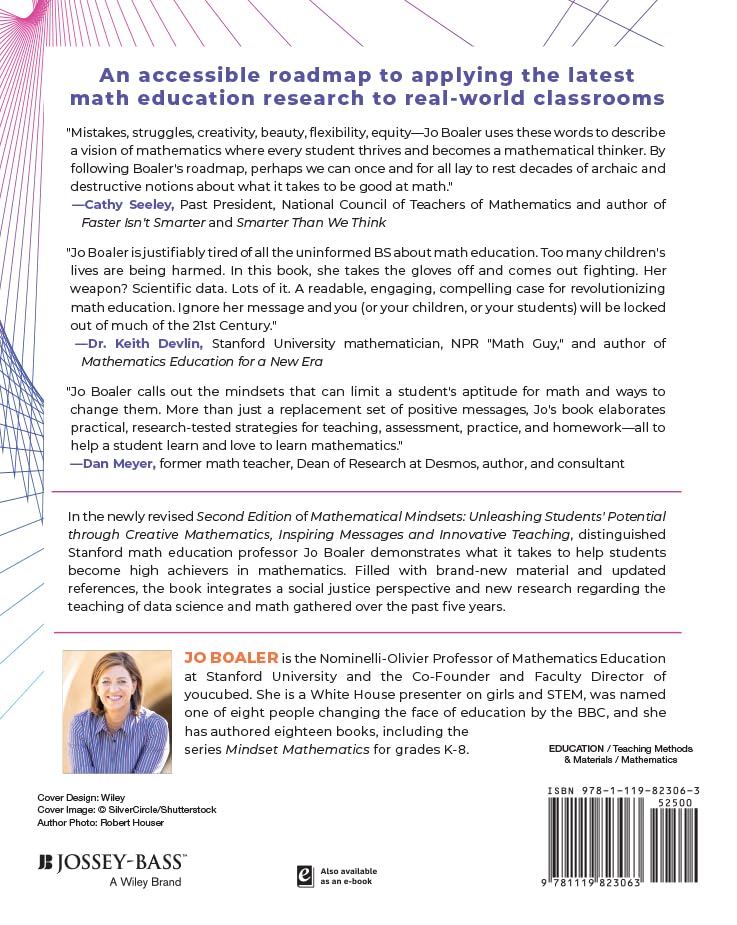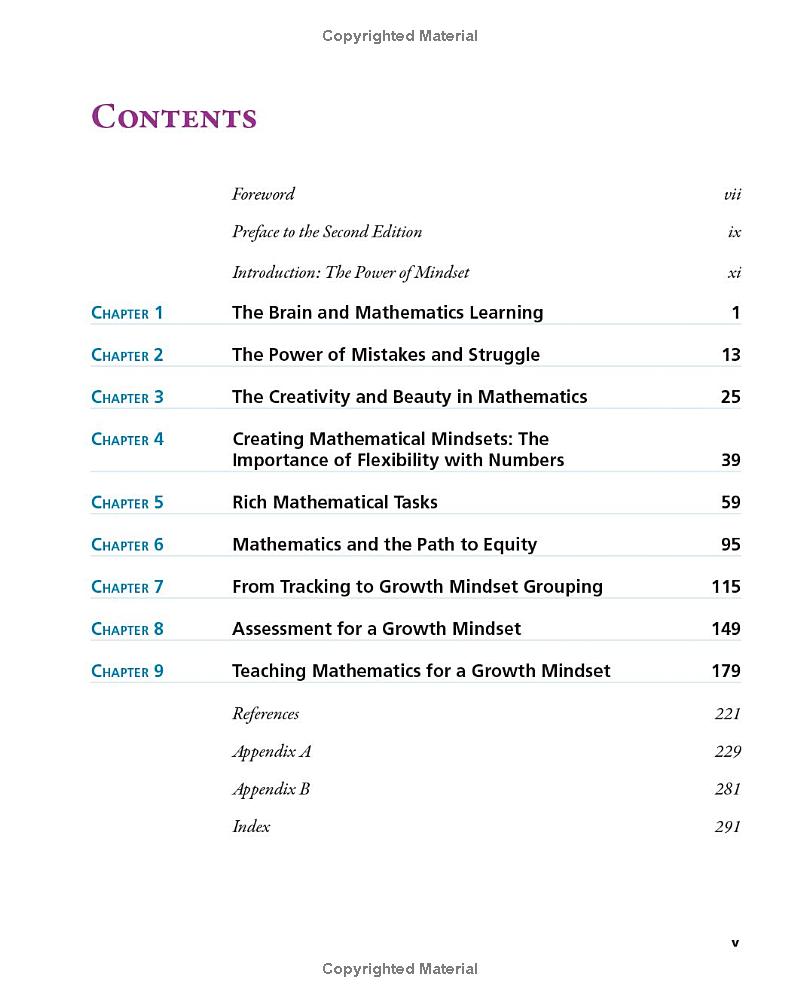There is a clear gap between what research has shown to work in teaching math and what happens in schools and at home. This book bridges that gap by turning research findings into practical activities and advice. Boaler translates Carol Dweck’s concept of ‘mindset’ into math teaching and parenting strategies, showing how students can go from self-doubt to strong self-confidence, which is so important to math learning. Boaler reveals the steps that must be taken by schools and parents to improve math education for all. Mathematical Mindsets:
- Explains how the brain processes mathematics learning
- Reveals how to turn mistakes and struggles into valuable learning experiences
- Provides examples of rich mathematical activities to replace rote learning
- Explains ways to give students a positive math mindset
- Gives examples of how assessment and grading policies need to change to support real understanding
Scores of students hate and fear math, so they end up leaving school without an understanding of basic mathematical concepts. Their evasion and departure hinders math-related pathways and STEM career opportunities. Research has shown very clear methods to change this phenomena, but the information has been confined to research journals—until now. Mathematical Mindsets provides a proven, practical roadmap to mathematics success for any student at any age.
Only one in three schools promote a mathematical growth mindset
Research shows our brains want to think visually about mathematics, yet few curriculums encourage students to do so. Dr. Jo Boaler, Professor of Mathematics Education at Stanford University, can show you how to inspire all types of learners using creative math. Her growth mindset approach lets students see math as a broad landscape of unexplored puzzles instead of fixed methods.




